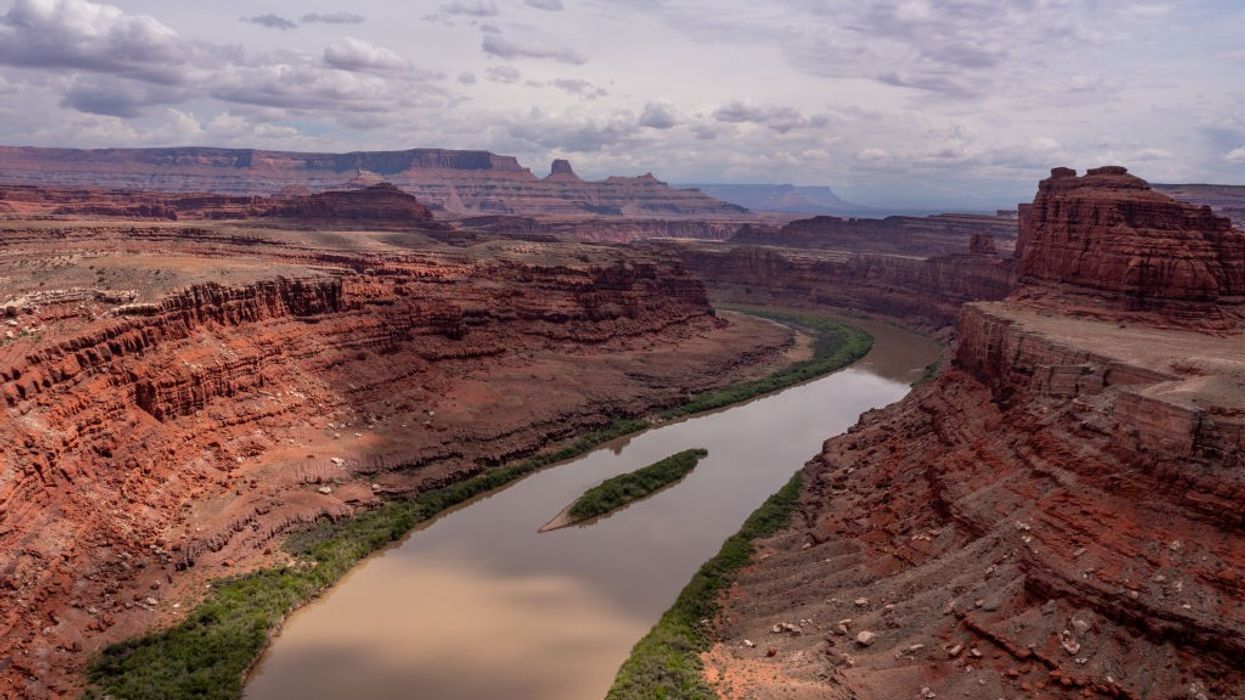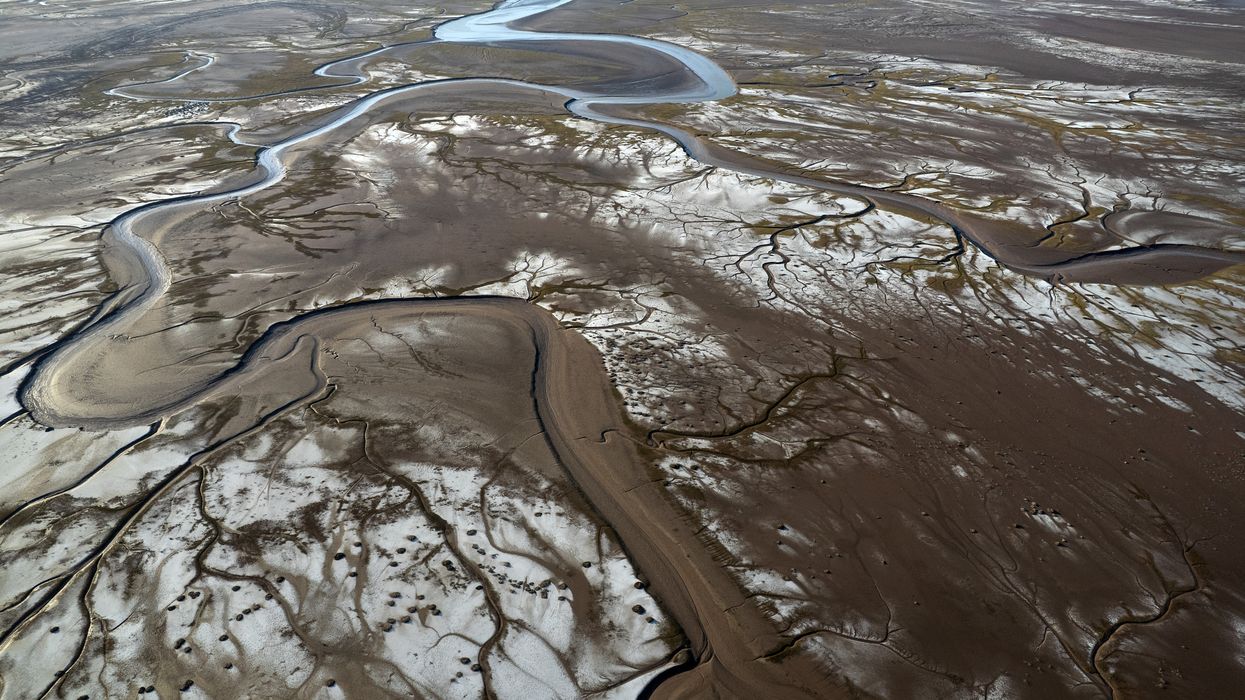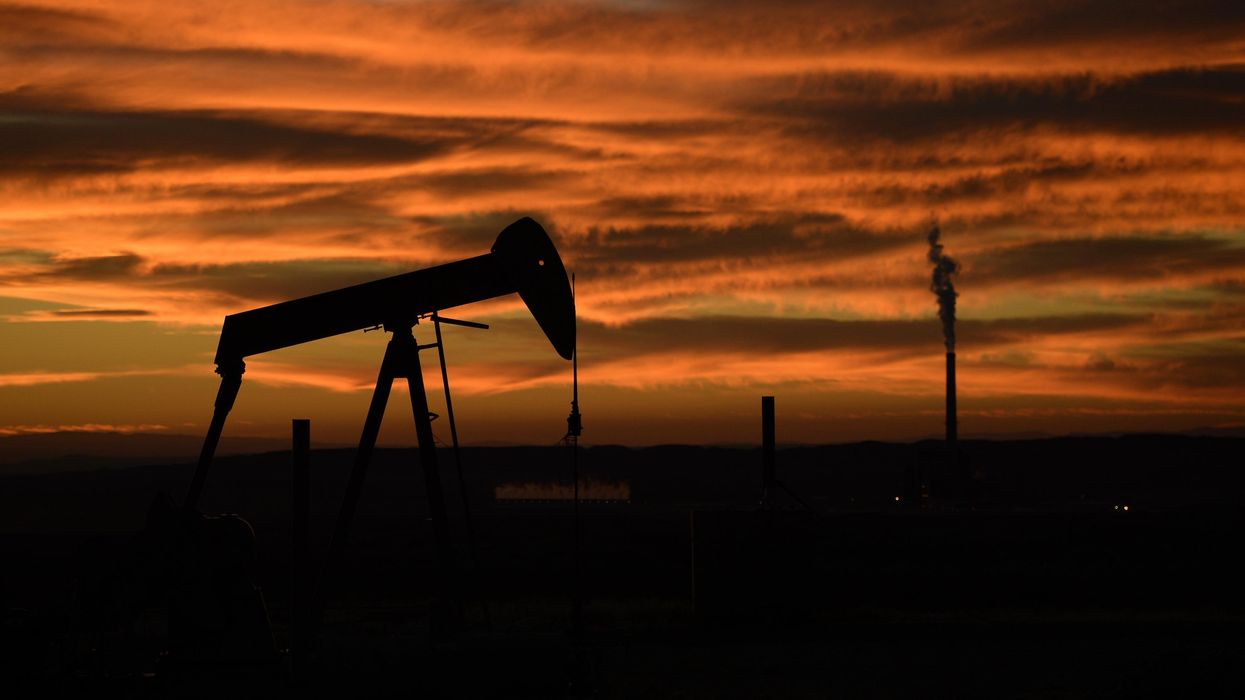Trump Admin Quietly Approves Massive Crude Oil Expansion Project
"This thinly analyzed decision threatens the lifeblood of the American Southwest," said one environmental attorney.
The Trump administration has quietly fast-tracked a massive oil expansion project that environmentalists and Democratic lawmakers warned could have a destructive impact on local communities and the climate.
As reported recently by the Oil and Gas Journal, the plan "involves expanding the Wildcat Loadout Facility, a key transfer point for moving Uinta basin crude oil to rail lines that transport it to refineries along the Gulf Coast."
The goal of the plan is to transfer an additional 70,000 barrels of oil per day from the Wildcat Loadout Facility, which is located in Utah, down to the Gulf Coast refineries via a route that runs along the Colorado River. Controversially, the Trump administration is also plowing ahead with the project by invoking emergency powers to address energy shortages despite the fact that the United States for the last couple of years has been producing record levels of domestic oil.
Sen. Michael Bennet (D-Colo.) and Rep. Joe Neguse (D-Colo.) issued a joint statement condemning the Trump administration's push to approve the project while rushing through environmental impact reviews.
"The Bureau of Land Management's decision to fast-track the Wildcat Loadout expansion—a project that would transport an additional 70,000 barrels of crude oil on train tracks along the Colorado River—using emergency procedures is profoundly flawed," the Colorado Democrats said. "These procedures give the agency just 14 days to complete an environmental review—with no opportunity for public input or administrative appeal—despite the project's clear risks to Colorado. There is no credible energy emergency to justify bypassing public involvement and environmental safeguards. The United States is currently producing more oil and gas than any country in the world."
On Thursday, the Bureau of Land Management announced the completion of its accelerated environmental review of the project, drawing condemnation from climate advocates.
Wendy Park, a senior attorney at the Center for Biological Diversity, described the administration's rush to approve the project as "pure hubris," especially given its "refusal to hear community concerns about oil spill risks." She added that "this fast-tracked review breezed past vital protections for clean air, public safety and endangered species."
Landon Newell, staff attorney for the Southern Utah Wilderness Alliance, accused the Trump administration of manufacturing an energy emergency to justify plans that could have a dire impact on local habitats.
"This thinly analyzed decision threatens the lifeblood of the American Southwest by authorizing the transport of more than 1 billion gallons annually of additional oil on railcars traveling alongside the Colorado River," he said. "Any derailment and oil spill would have a devastating impact on the Colorado River and the communities and ecosystems that rely upon it."


